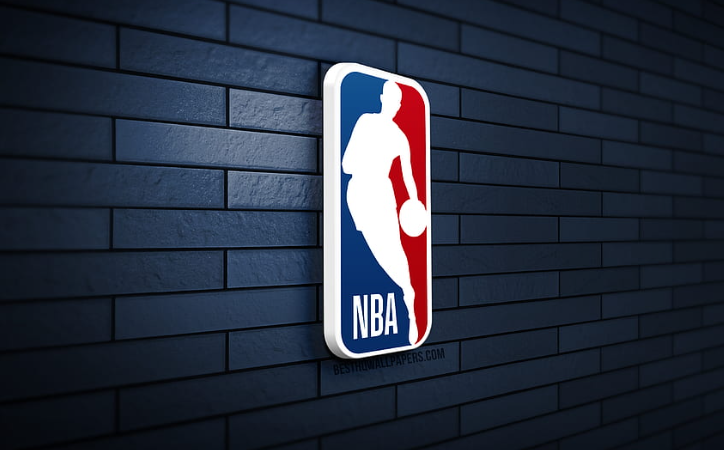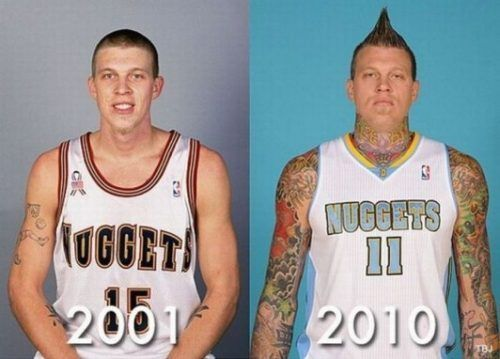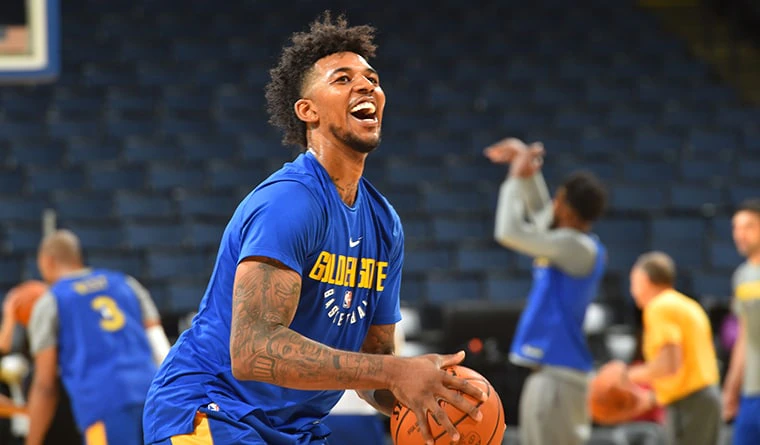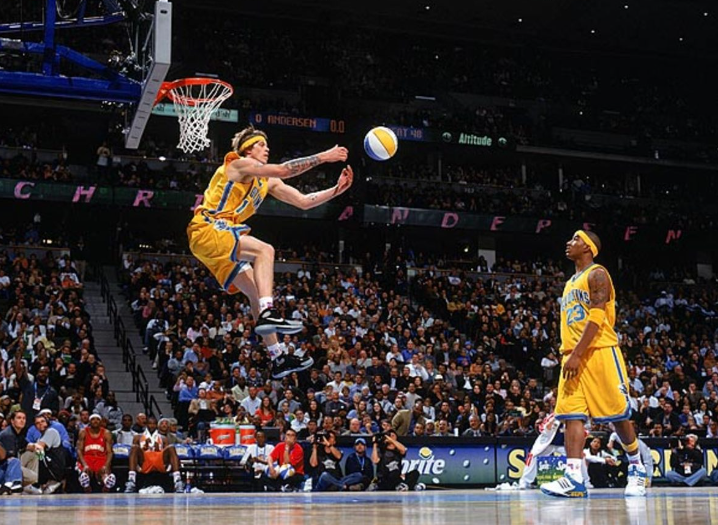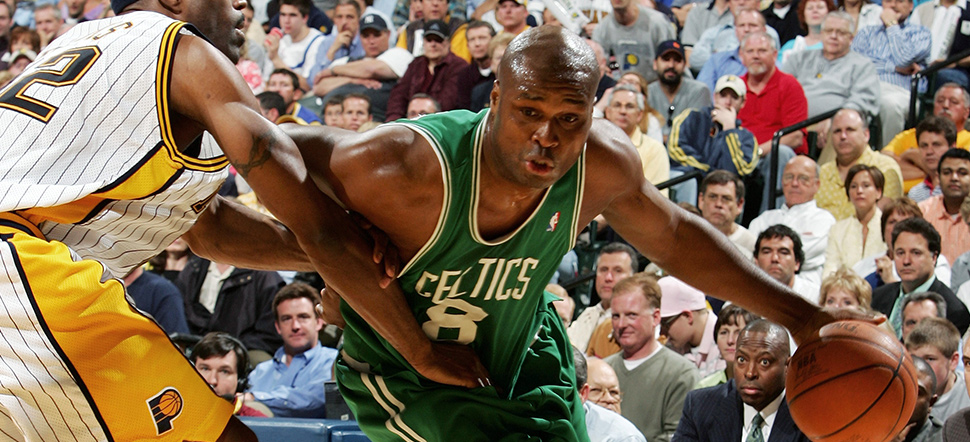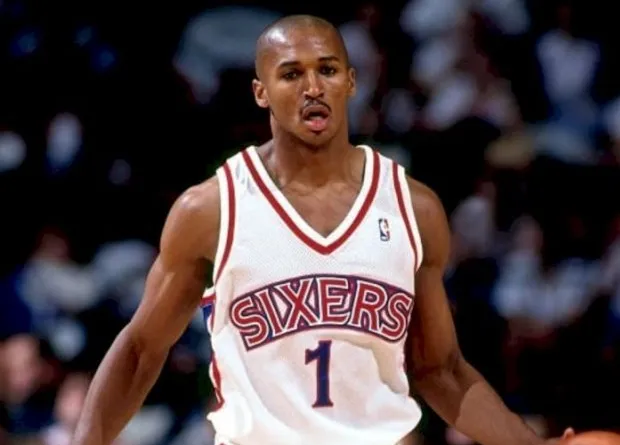When it comes to the Chicago Bulls, there is no doubt that Michael Jordan is the first name that comes to mind. Before 1984, the Illinois franchise had more shadows than lights, much like LeBron James did with the Cleveland Cavaliers, and its six NBA titles were credited to the champion's performance.
Nonetheless, throughout its history, there have been numerous players who, despite winning less than they deserved, will be remembered in the pages of the game's history. So let's take a look at the Chicago Bulls' top ten scorers of all time.
10. Derrick Rose - 8,001 points
Photo: thesource
Derrick Rose is the first name on this list, and he is a big name. With 8,001 points in eight seasons, the Memphis, Illinois native has long been regarded as Michael Jordan's natural heir, having brought his Chicago Bulls back to prominence after years of obscurity.
Derrick Rose's game was based on stellar physical explosiveness, which allowed him to dominate the league and win the MVP award in 2011 at the age of 22. Before the Crusader injury in the Philadelphia 76ers race jeopardized his career, his game was based on stellar physical explosiveness, which allowed him to dominate the league and win the MVP award in 2011.
He has fortunately found the right balance between his devastated body and his talent, first with the Minnesota Timberwolves and now with the Detroit Pistons, after several years on the run, with disappointing experiences in New York and Cleveland studded with injuries, such as to suggest his early retirement.
9. Reggie Theus - 8,279 points
Photo: nba
Reggie Theus entered the NBA after a successful collegiate career with UNLV, where he was selected ninth overall in the 1978 Draft by the Chicago Bulls and scored 8279 points for the team.
After being in contention for the freshman of the year award until the very last season, the guard proved to be an excellent teammate of Artis Gilmore, the former ABA champion, with whom he formed a duo of undeniable talent in the following seasons.
He earned the moniker Rush Street Reggie over the years, not only because he lived in an apartment on the same street, but also because he was one of the most active residents.
Despite his excellent offensive performances, which earned him a spot in the 1981 All-Star Game, his seasons were never particularly successful in terms of the team's fate.
The Chicago Bulls' season frequently ended prematurely during the regular season during those years, except 1981, when they were swept 4-0 in the second round by the Boston Celtics, the eventual NBA champions.
His time in Chicago came to an end when Kevin Loughery joined the bench and reduced his role on the team before trading him to the Kansas City Kings for Steve Johnson and three second-round picks.
8. Kirk Hinrich - 8,536 points
Photo: aroyalpain
Kirk Hinrich's story, unlike most of the champions on this list, is diametrically opposed to the typical sports narratives, which are often devoted to talented players or doomed to glory. Many insiders sneered at his selection with the seventh overall pick in the 2003 Draft.
According to many, the Chicago Bulls would have chosen a player who, despite a strong collegiate career, would have struggled to make an impact at the next level.
Kirk Hinrich, on the other hand, blew any prediction out of the water: despite having a slender physique for the NBA at the time, he immediately proved ready to jump into the league, putting in good performances that allowed him to steadily gravitate into the starting quintet's orbit.
Kirk Hinrich returned to the Chicago Bulls after an interlude between Washington and Atlanta, where he resumed what he had interrupted, climbing further up the All-Time standings to eighth place with 8536 points.
7. Artis Gilmore - 9,288 points
Photo: jeevanipedia
Following the dissolution of the Kentucky Colonels in 1976, Artis Gilmore was selected by the Chicago Bulls, where he quickly established himself as the new leader of the team, which he carried on his shoulders with his 9288 points.
The results, on the other hand, were often slow to come, given that the center only hit the Playoffs' goal twice during his time in Illinois.
Gilmore tried competitive activity in Italy after his career in America ended, and he was able to prove his worth with Fortitudo Bologna, eventually being selected for the European All-Star Team.
6. Chet Walker - 9,788 points
Photo: nba
Chet Walker joined the Chicago Bulls in 1969 after spending the first part of his career with the Syracuse Nationals and the Philadelphia 76ers. He quickly established himself as one of the team's most productive players.
During his six seasons with the Bulls, he demonstrated unwavering consistency in the basket, averaging 19 points per season on average and totaling 9788 points on the scoreboard.
Together with Jerry Sloan, he was able to combine his talent with the appropriate equipment to propel the team to new heights, despite never making it past the Conference finals.
5. Jerry Sloan - 10,233 points
Photo: nba
Jerry Sloan was drafted fourth overall by the Baltimore Bullets in 1965 after an outstanding college career at Evansville, before moving on to the newly formed Chicago Bulls in the following year's expansion draft.
In his ten seasons in Chicago, he formed a deadly couple to the basket with Chet Walker, which allowed the team to achieve numerous accomplishments, including two consecutive Conference finals appearances in 1974 and 1975, despite losing to the legendary Kareem Abdul-Milwaukee Jabbar's Bucks.
Jerry Sloan's career, however, was cut short the following year due to a severe knee injury. After being forced to retire, he completed all of the necessary training to become the head coach of his Bulls in 1979, where he collaborated with Reggie Theus and Artis Gilmore.
But it was in Salt Lake City that he made his real mark as a coach: from 1988 to 2011, he led the Utah Jazz to two NBA Finals, where, ironically, he was forced to surrender. His fate had brought him to the Chicago Bulls.
4. Luol Deng - 10,286 points
Photo: nba
Born in Sudan, he spent his childhood in England before moving to the United States at the age of 14. For a time, he was regarded as the best high school prospect in the country, second only to LeBron James. He was drafted seventh overall by the Phoenix Suns in 2003, but was quickly traded to the Chicago Bulls in exchange for Jackson Vroman.
From 2003 to 2012, he was a member of the Illinois basketball team, where he was the backbone of the team that reached the Conference finals in 2011 against the Miami Heat, along with Derrick Rose.
After moving to Florida and then the Los Angeles Lakers, he decided to sign a contract with the Chicago Bulls even though he had never played for them, to end his career with the team to which he had given far more than his 10,286 points.
3. Bob Love - 12,623 points
Photo: history.bulls
Bob Love, a member of the talented Chicago Bulls of the 1970s, joined the team in 1968 and quickly established himself as a player with undoubted abilities.
However, his 12,623 points represent only a small part of his total, as his contribution was primarily due to his defensive proclivity, which allowed him to protect his trusted teammates Jerry Sloan and Chet Walker. His number 10 jersey was the second to be retired from the Chicago Bulls after his retirement.
2. Scottie Pippen - 15,123 points
Photo: essentiallysports
He was selected in the 1987 NBA Draft and was a key component of the game system that allowed the Chicago Bulls to win six NBA titles in two Three-peats, a feat that has never been repeated.
Scottie Pippen was called to take over the team during Michael Jordan's exile, and while the team failed to win, it coincided with his two best scoring seasons.
While he will always be remembered for his 15,123 points, an All-Star Game MVP award in 1994, and several NBA quintet nominations, he is one of the most talented players of his generation.
1. Michael Jordan 29,277 points
Photo: Getty Images
Only "His Airness" Michael Jordan could be seated atop the Chicago Bulls' throne. After Hakeem Olajuwon and Sam Bowie, the living incarnation of the franchise was selected with the third pick in the 1984 Draft, and his career is recognized by anyone with even a passing interest in not only American, but global basketball.
Michael Jordan shattered numerous scoring records during his two stints with the Chicago Bulls, as evidenced by his 10 years as the league's best scorer, during which he amassed 29,277 points, nearly double that of second-place finisher Scottie Pippen.
